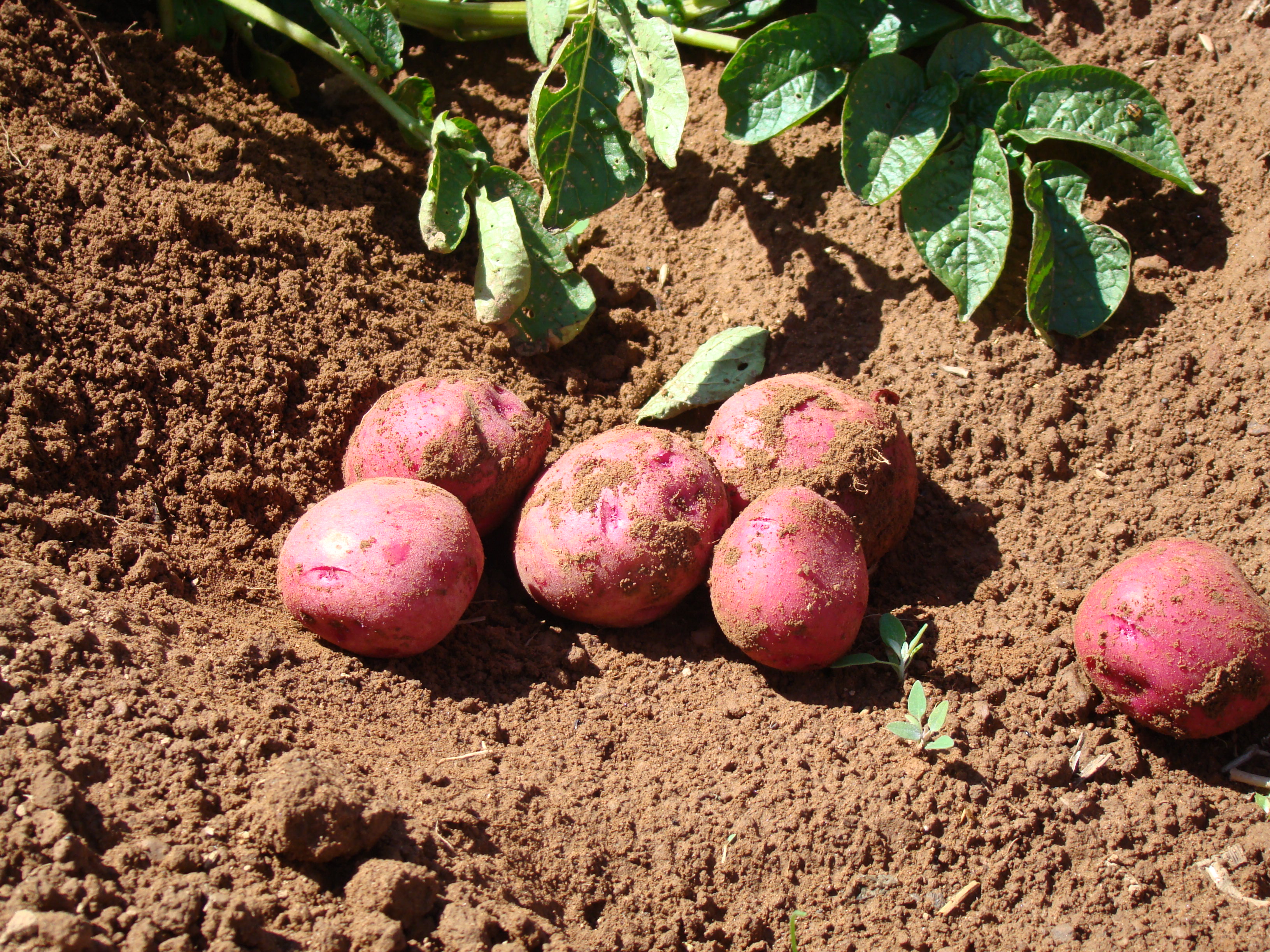
23 Aug Preparing for Harvest: Resources and Reminders
2018 has been a challenging season with the long, cold spring, hot and humid summer and extended dry periods broken by heavy rainfall events. As we start to prepare for harvest season, proper cleaning and disinfecting practices as well as pre and post-harvest testing can help to avoid problems in storage with fungal and bacterial pathogens as well as seed transmitted diseases such as blackleg and virus.
Cleaning & Disinfection
It is a Best Management Practice for all growers, and particularly seed growers, to completely clean and disinfect all equipment and storage facilities between crops. Two years ago the Board conducted Cleaning and disinfection workshops, which included presentations by David MacSwain (biosecurity), Dr. Solke de Boer (potato diseases and why we disinfect) and Ken Lingley (disinfection equipment).
Videos of these workshops can be found on YouTube here. They provide a good refresher before starting the job. Log books are available from the PEI Potato Board to help growers keep a record of these activities.
PEI Diagnostic Lab
If you are seeing disease symptoms in your field late in the season and are not sure of the cause, samples can still be submitted to the PEI diagnostic lab. For disease analysis, submit samples to PEI Analytical Laboratories, plant diagnostic section, located at 23 Innovation Way, Charlottetown or through your local Access PEI office. For sample submission forms please visit the web site here.
Knowing if you have blight, blackleg or pink rot in your field can help growers to manage when fields are harvested, how they are treated and where lots may be placed in storage.
Potato Quality Institute
PQI accepts leaf samples from growers on an ongoing basis during the growing season to test for potato virus disease. They will also test both suspect field samples and samples from harvested seed lots for the presence of blackleg causal pathogen Dickeya spp. This may also be of interest if you’re considering importing seed potatoes from off-Island sources and would like to have them tested in advance.
Services also include testing seed samples to meet export requirements, for the industry Post Harvest Virus Test and soil samples for Verticillium spp. and root lesion nematodes that can contribute to potato early dying. Notices will go out prior to harvest with details on sample size and sample collection procedure for post-harvest virus testing.
Research Samples
Just prior to, or during harvest, is also the prime time to collect tuber or soil samples from fields in which different practices are being compared to a conventional approach.
A: Common Scab
Drs. Martin Filion (U de Moncton) and Claudia Goyer (AAFC-Fredericton) will be looking for tuber samples from PEI fields for common scab. This is part of a national project on common scab that the Potato Board is supporting. There is no cost to submit these samples. The only information needed with each sample is
- Field location (community)
- Variety
- Conventional or Organic production system
If you are interested in submitting samples, please contact Ryan at (902) 892-6551 or ryan@peipotato.org for more details.
B: Crop Rotation
Any growers that are interested in working with Ryan and the AIM program on crop rotation trials related to building soil organic matter or battling Early Dying complex are asked to contact Ryan. Soil testing and field set up for 2019 evaluation will be taking place this fall.
